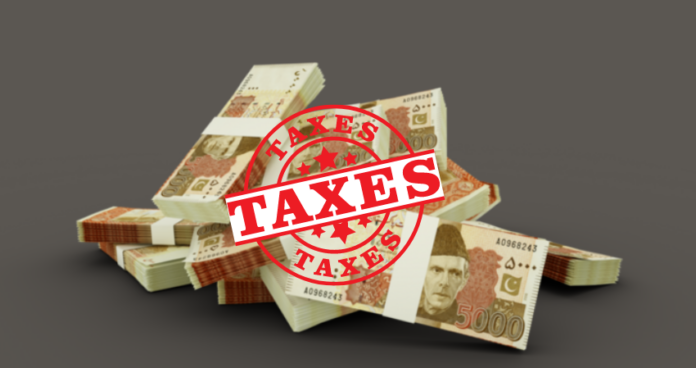The government is re-evaluating its proposed income tax increases for salaried individuals and exporters, as well as the implementation of an 18% sales tax on infant milk, following widespread criticism and the strain of unprecedented Rs1.5 trillion additional revenue measures.
Discussions have begun, driven by Finance Minister Muhammad Aurangzeb and Prime Minister Shehbaz Sharif. However, the outcome depends on fiscal flexibility and the International Monetary Fund’s (IMF) approval.
The government aims to generate an additional Rs75 billion next fiscal year by raising taxes on the salaried class, who already contributed Rs360 billion this year. Despite reducing electricity costs for industrialists by Rs240 billion, there’s pressure to reconsider the decision to apply standard income tax rates to exporters.
A proposal suggests gradually increasing the income tax burden on exporters, who paid Rs85.5 billion in the first 11 months of this fiscal year, potentially reaching Rs100 billion by June’s end. However, any tax relief for exporters may be controversial, especially amid widespread heavy taxation affecting all societal segments.
Senator Saleem Mandviwalla of the Pakistan Peoples Party (PPP) opposed the tax hikes, stating that the Senate Standing Committee on Finance would reject these proposals. The committee also recommended revisiting the 18% sales tax on infant milk, with Federal Board of Revenue (FBR) Chairman Malik Amjad Zubair Tiwana suggesting a phased approach instead of an immediate hike.
The proposed budget plans to remove the zero-rating on infant milk sales, aiming to recover Rs20 billion in additional taxes next fiscal year. Including the new taxes, the real impact on infant milk could be a 25% price increase, according to Sheikh Waqar Ahmad, head of external affairs at Nestle-Pakistan. This sudden price hike would be shocking, argued Senator Anusha Rehman of the PML-N, advocating for a gradual tax increase.
While some argue that packaged infant milk is a luxury, others, like Senator Saleem Mandviwalla, stress its widespread use across Pakistan.
Additionally, the government has imposed an 18% GST on packaged milk to raise Rs75 billion in taxes, raising milk prices from Rs290 to Rs342 per liter. Despite imposing heavy taxes to show a primary fiscal surplus, the PML-N government did not opt for reducing expenditures by cutting ministries or restricting spending. The proposed Rs18.9 trillion budget for the next fiscal year is 30% higher than this year, indicating reluctance to upset allies.
The standing committee endorsed a proposal allowing Pakistan International Airlines (PIA) to adjust its losses for the next 10 years. However, Pakistan Tehreek-e-Insaf’s Senator Mohsin Aziz criticized this as a hidden incentive for prospective buyers of PIA, who would avoid income tax due to the adjustment of future profits against past losses.
The committee also supported banning foreign travel for non-filers of income tax returns, though the FBR clarified that this would only apply to those served notices to submit returns. There was opposition to introducing a new category of “delayed filers” with higher tax rates, which Senator Mandviwalla argued narrows the path for non-filers by offering them an option to pay higher taxes than filers but less than non-filers.
In the budget, the government has introduced three different income tax rates for filers, late filers, and non-filers, with the highest rate for non-filers.




